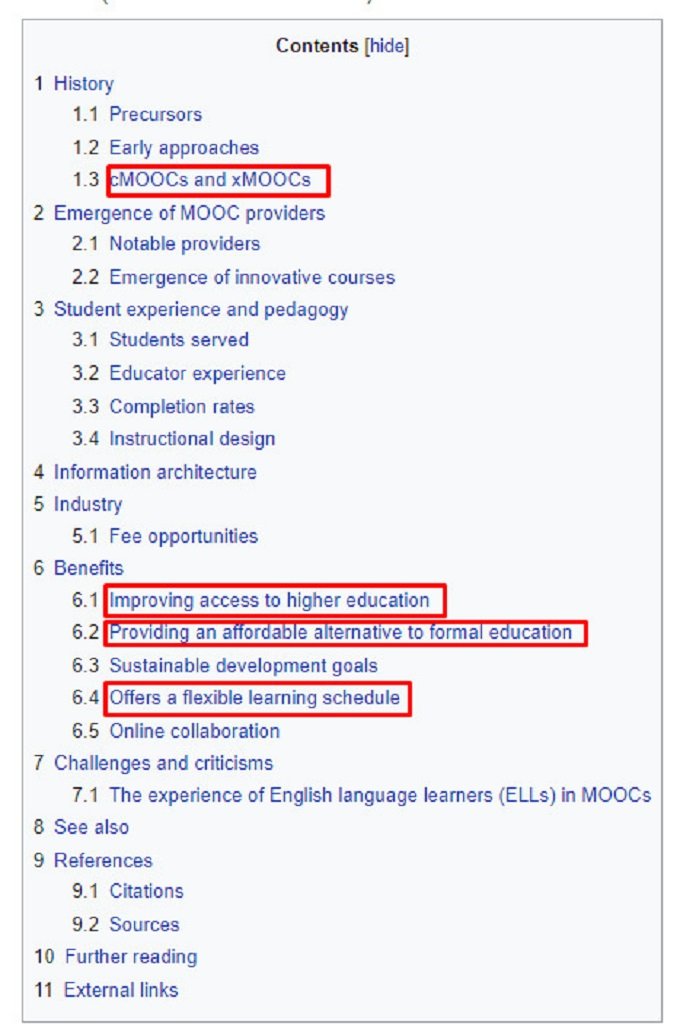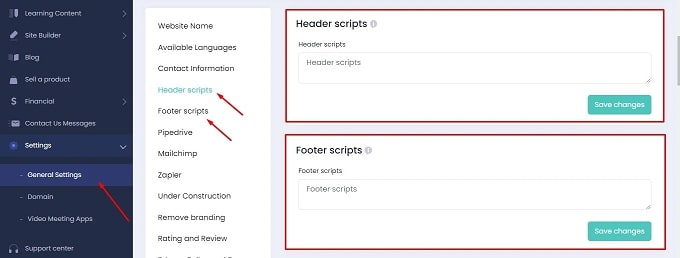This article will explain the importance of SEO optimization and its benefits. We will explain how this tool will help you generate more students and become visible to search engines.

The following article covers:
What is SEO?
SEO (Search engine optimization) is something not so familiar to everyone despite its widespread use in the digital world.
In short, SEO ensures your website's visibility on the Internet.
Let's suppose you want to find information on "tourism in the USA." You search it in your browser (let's say Google),and Google shows you thousands of sites.
Naturally, everyone wants their site to appear on the first page of the search engine and, at best, in the first few lines. So SEO is responsible for all that.
It is essential to reach your potential client in every business in the most cost-effective way.
It is hard to choose the right way to be on the top of search engines results with so many options. These problems relate to the E-learning industry too.
Even ending at the bottom of the SERP page will not be handy for you. You will lose a significant number of your potential visitors.
SEO optimization strategies help you improve your website so search engines can rank it correctly and avoid an SEO ranking drop.
SEO involves many different steps, but the most important steps are:
- keyword research,
- content creation,
- backlink profile creation,
- and increasing website usability.
Search engines rank websites based on how beneficial they are to users. They want to give the users the most helpful and high-quality resources.
Creating a solid backlink profile is the most complex step and the most effective one. It means that other sites should link to your content, and the higher the ranking of the other site is, the higher the search engine will rank your website.

SEO importance in e-learning
In the online teaching business, it is crucial to use all relevant tools and platforms to be easily found by your audience.
Here we have listed the 3 most essential SEO opportunities for e-learning.
Generate more traffic
The first use of SEO is generating traffic to your website. That means that you will be more visible to your potential clients and can get in touch with them in that step.
Also, more people will start to learn about your school, leading to more applications from students.
Cost-effective strategy
SEO is, so far, the most cost-effective strategy to implement for your business. Unlike billboards or external advertising methods, it doesn't target the masses. It is a long-time investment that helps you target your specific audience with minimal costs. Also, keep in mind that it depends on your business type strategy and market saturation which method will work for you, paid advertising for ecommerce, or SEO.
Understand your target audience
Before starting a business, we create the ideal buyer persona, but it is not always correct.
When you reach your desired organic traffic, you can analyze and find out:
- the keywords that led your user
- how users stay on your website
- on which pages do they last longer
It will help you identify your customers' needs and wants and optimize your website.

SEO details description
SEO can be external and internal.
Internal promotion depends on the inner improvement of the site:
- The choice of keywords which we should use on our content.
- Work with the internal mechanism (robots.txt, sitemap.xml)
- Meta-description
- Making the site easy for the user
- Elimination of technical errors (Duplicate pages, incorrect links, site acceleration)
- Other steps to make the site convenient (catchy design, bug fixes, text sizes, etc.)
Those actions play a significant role in improving your site's visibility and ranking in search results.
Keywords are the words with which "searchers" search and find relevant sites.
Let's suppose you have an online menswear store.
To get traffic to your teaching website, you should use such keywords as:
“Online courses”,
“Academic development”,
“Active learning”,
“Online learning”,
etc.
Title
The title is essential for search engines. It should be "interesting" and informative.
The Title tag is part of the HTML code, which is located in the "head" block.
If you are writing an article, its title, h1 itself, can be a title.
The title "tells" search engines what your content is about. It appears in the search results as a link to a website.
The title plays a critical role in SEO promotion. It should include Keywords (searched words or phrases).
Write the most important "key" first, then the secondary.
Remember that be it a title or content, write it for people, not for search engines. If you use too many repetitive keywords, it will be considered spam.
Let's explore a few essential things about titles.
Length․ it should have 50-60 characters, including spaces. It may be longer, but you should first write the "keywords" because search engines may not consider what is written after.
Keyword layout․ Write down the most vital "keys" first, then only the not-so-strong ones.
Do not repeat titles․ Each page should have its unique title. Otherwise, it will cause problems.
Write a title relevant to the content․ It should correspond to the brief description of your text. Do not write meaningless titles that say nothing.
Do not make a "keyword combination" of a title.
Do not write down the "keys" without giving them meaning.
For example, you do not need to write “SEO title, SEO text”․ It would be more accurate: "SEO Title," "SEO promotion with Title," - or "how to write the right Title"?
Meta description
Meta-description is a short description of your content.
So when writing a meta description, try to be literate and use the primary keywords.
The website needs to be easy to use and understandable for the user.
If the user does not find what he is interested in within seconds, he will leave the site. And search engines will notice that, which will not play in our favour.
Develop optimized websites with simple but eye-catching designs.
Let's go ahead and talk about eliminating technical errors—for example, page duplicates.
Never write the same meta description a second time. It causes a double page. And in the case of writing, there is a solution. You need to add the "canonical" tag.
It informs the search engines that this page is a duplicate of another page.
HTTP: // ... (this will be taken care of by the programmer).
Another important note regarding links. Avoid giving links to suspicious sites. That fact can be very costly. If there is an opportunity to leave comments on your site, make sure that such links are removed quickly.
Keywords
When thinking about SEO optimization, it is impossible to ignore the importance of keywords. They must be searched, grouped, and posted.
How and where?
The first thing most people do is get help from Google Planner.
Write any keyword you are interested in, and it gives options. And finally, everything is ready.
But wait a minute, what if everyone, or the majority, uses the exact keywords. What will happen in the end? And besides, the planner presents only the most common keys, and it will be pretty challenging to go through them and get to the first page of the search.
Think more broadly.
For example, when you hear the word "online course," what do you think first?
I immediately remember Uteach,
the other can remember Coursera,
the third - Project management,
the fourth - SMM in a month.
And all this refers to online courses. That means that these words can become our keys.
Let's start looking for keywords in Wikipedia.
We searched for the word "online courses." The wiki brought information divided into several parts.
When you open the page, you will notice the phrase "MOOC" (Massive open online course) from the very beginning.
Do you think it can be a keyword? Of course, Yes.
After all, one can look for the expression team sport. And football is a team sport.

Where and how to add?
Uteach allows you to optimize your website in a few clicks.
Do keywords research, create an SEO-friendly title description, and separate research keywords. Those you can add in learning materials, pages, and blog articles.
Admins can add SEO data on all their pages, but each page requires adding data manually.
Fill in the necessary information and move to "Settings"․
Here you can see the fields where you should add the information regarding SEO optimization.
Be attentive to details to make your course one of the leading ones in SERPs.

SEO tools integration
The Uteach team has created a tool to help you integrate any software just in one step.
To integrate an app or software onto your page, you need to go to General Settings - and put the script code in the header or footer. Remember that it is necessary to have a script code from that particular software to make integration possible.

To sum up, we want to say that always consider the importance of SEO optimization because these small steps one day will ensure your success.


![How to Start Online Coaching Business [Proven Strategies]](https://d35v9chtr4gec.cloudfront.net/uteach/articles/LXoil0HbCqKEO2lAdpzG-1693384984/start-online-coaching-business.jpg)
